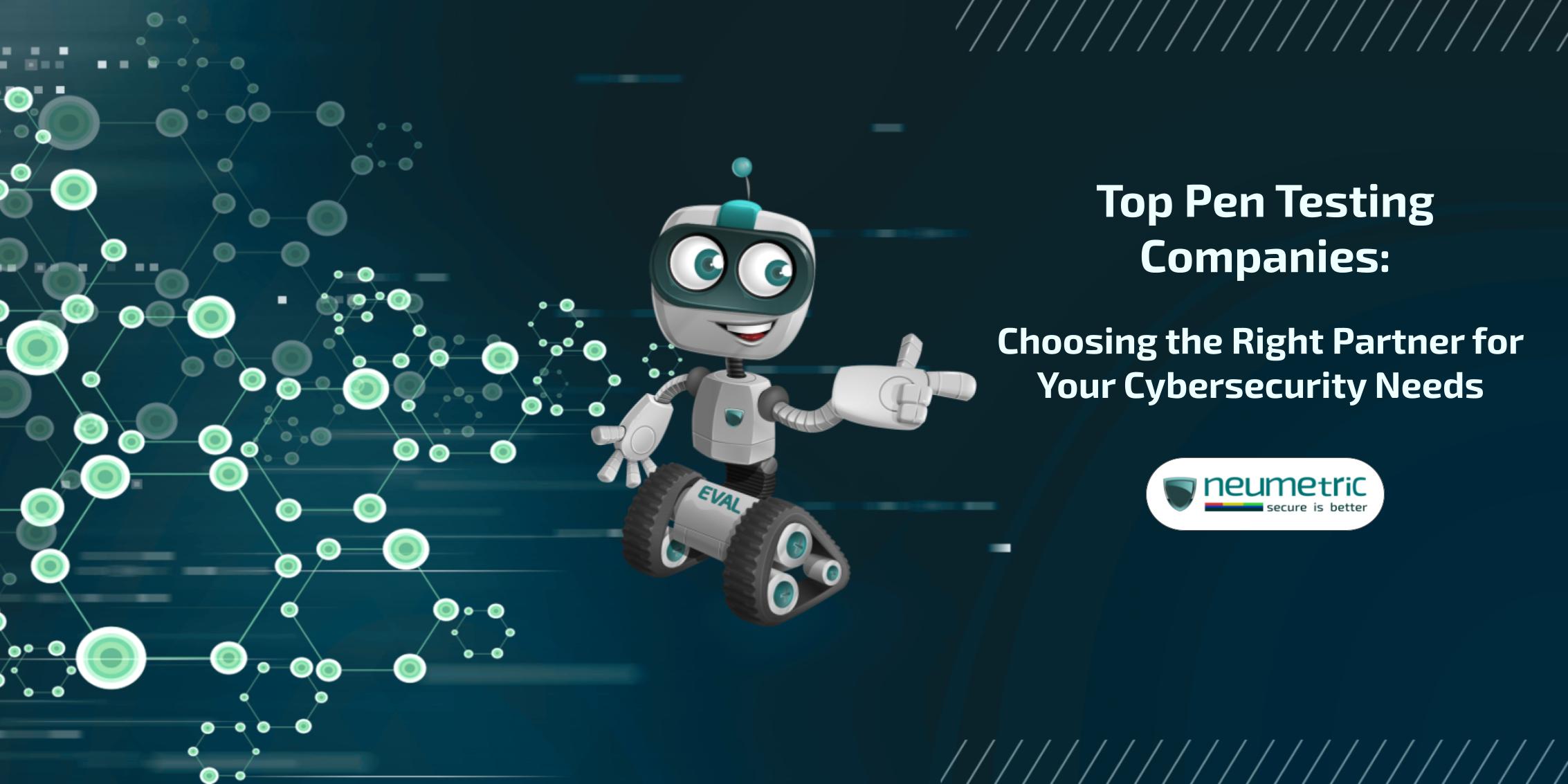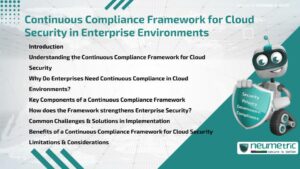Table of Contents
ToggleIntroduction
In today’s increasingly complex digital landscape, organizations face unprecedented cybersecurity challenges. As cyber threats evolve & become more sophisticated, the importance of identifying & addressing security vulnerabilities before they can be exploited has never been greater. This is where penetration testing services, commonly known as pen testing, play a crucial role.
Selecting the right pen testing companies can mean the difference between a robust security posture & potential devastating breaches. The challenge lies not just in finding a provider, but in identifying a partner who can truly understand & address your organization’s unique security needs while delivering actionable insights that drive meaningful improvements in your security posture.
Understanding the Landscape of Modern Penetration Testing
Cybersecurity has transformed greatly over the past decade. What once was a relatively straightforward process of testing network defenses has evolved into a complex, multi-faceted discipline. Modern pen testing companies must navigate an intricate web of cloud services, IoT devices, mobile applications & sophisticated enterprise networks. This evolution has led to the emergence of specialized firms offering various levels of expertise & service offerings. The complexity of modern IT infrastructures demands a more nuanced & comprehensive approach to security testing, requiring pen testing companies to continuously adapt & enhance their methodologies.
When considering pen testing companies, organizations must understand that not all providers are created equal. Some focus on specific industries or technologies, while others offer comprehensive testing across multiple domains. The key lies in finding a partner whose expertise aligns with your specific security needs & business objectives. This alignment extends beyond technical capabilities to include factors such as communication style, project management approach & understanding of your industry’s regulatory environment.
The Role of Professional Pen Testing in Modern Security
Professional penetration testing serves as a proactive measure in an organization’s security strategy. Unlike automated vulnerability scanners, skilled penetration testers employ creative thinking & real-world attack scenarios to identify security weaknesses that automated tools might miss. They simulate sophisticated cyber attacks, providing valuable insights into how well your defenses would hold up against actual threats. This human element in security testing is irreplaceable, as it brings an understanding of attack psychology & the ability to chain together multiple vulnerabilities in ways that automated tools cannot predict.
Top pen testing companies distinguish themselves through their methodology, expertise & ability to provide actionable recommendations. They don’t just identify vulnerabilities; they help organizations understand the potential impact of these vulnerabilities & provide practical steps for remediation. This consultative approach helps organizations build a more mature security program that goes beyond simple vulnerability management.
The Evolution of Attack Surfaces
The modern enterprise attack surface has expanded significantly, requiring pen testing companies to evolve their testing methodologies continuously. Traditional network perimeters have dissolved, replaced by complex ecosystems of cloud services, remote work infrastructure & interconnected supply chains. This expansion has created new attack vectors & increased the importance of comprehensive security testing.
Professional pen testing now must consider various elements such as:
- Cloud infrastructure & services
- Remote access systems & VPNs
- Mobile device management platforms
- Third-party integrations & APIs
- DevOps pipelines & container environments
- Microservices architectures
- Serverless computing platforms
Criteria for Evaluating Pen Testing Companies
Technical Expertise & Certifications
When evaluating potential pen testing companies, technical expertise should be at the forefront of your considerations. Look for organizations whose testers hold relevant certifications such as Certified Ethical Hacker [CEH], Offensive Security Certified Professional [OSCP] or GIAC Penetration Tester [GPEN]. These certifications demonstrate a commitment to professional development & technical proficiency. However, certifications alone are not sufficient – the best pen testing companies invest in continuous training & development for their staff, ensuring they stay current with the latest attack techniques & defense strategies.
The depth of technical expertise should extend across multiple domains, including:
- Network security architecture
- Web application security
- Mobile application security
- Cloud security
- Industrial control systems
- Social engineering
- Wireless network security
Industry Experience & Specialization
Different industries face unique security challenges & regulatory requirements. Healthcare organizations, for instance, must ensure HIPAA compliance, while financial institutions need to address PCI DSS requirements. The best pen testing companies have experience in your specific industry & understand its unique security challenges & compliance requirements. This industry-specific knowledge allows them to provide more relevant & valuable insights during testing.
Industry expertise should encompass:
- Understanding of regulatory frameworks
- Knowledge of industry-specific threats
- Familiarity with common technology stacks
- Experience with industry-standard security controls
- Understanding of business processes & workflows
Methodology & Approach
A structured, comprehensive methodology is crucial for effective penetration testing. Leading pen testing companies typically follow established frameworks such as the OWASP Testing Guide or NIST guidelines. They should be able to clearly articulate their testing methodology & explain how it aligns with industry best practices. The methodology should be adaptable to different environments while maintaining consistency in quality & coverage.
Key aspects of a robust testing methodology include:
- Clear scoping & planning processes
- Risk-based approach to testing
- Comprehensive documentation
- Quality assurance procedures
- Regular methodology updates
- Integration with client’s security programs
Testing Tools & Technologies
Professional pen testing companies invest in both commercial & open-source testing tools while developing their own custom tools for specific testing scenarios. This combination allows them to leverage the best available technology while maintaining the flexibility to address unique security challenges. The toolset should be regularly updated & validated to ensure effectiveness against current threats.
Reporting & Communication
The value of penetration testing lies not just in finding vulnerabilities but in effectively communicating findings & recommendations. Top pen testing companies provide detailed, actionable reports that balance technical depth with clarity. These reports should include executive summaries for management while providing technical teams with the detailed information they need for remediation. The best providers also offer:
- Clear severity ratings for findings
- Detailed technical explanations
- Step-by-step remediation guidance
- Risk context for business stakeholders
- Verification procedures for fixes
- Support during remediation
The Comprehensive Testing Process
Initial Scoping & Planning
Professional pen testing begins with thorough scoping & planning. This phase involves defining the testing boundaries, identifying critical assets & establishing testing parameters. Leading pen testing companies work closely with clients during this phase to ensure alignment with business objectives & compliance requirements. The scoping process should consider:
- Business objectives & risk tolerance
- Technical environment complexity
- Regulatory requirements
- Resource availability
- Testing timeline & constraints
- Emergency procedures
Information Gathering & Reconnaissance
Before active testing begins, pen testing companies conduct thorough reconnaissance to understand the target environment. This phase includes:
- Passive information gathering
- Public information analysis
- Technology stack identification
- Network architecture review
- Security control mapping
Testing Execution & Documentation
During the testing phase, skilled penetration testers employ various tools & techniques to identify vulnerabilities. This includes both automated scanning & manual testing, ensuring comprehensive coverage of potential security weaknesses. The best pen testing companies maintain detailed documentation throughout the testing process, tracking their methodology & findings. Testing activities typically include:
- Vulnerability scanning & verification
- Manual security testing
- Exploitation attempts
- Privilege escalation testing
- Lateral movement assessment
- Data exfiltration testing
Analysis & Reporting
Following the testing phase, penetration testers analyze their findings to determine the significance of identified vulnerabilities. They consider factors such as exploitability, potential impact & the likelihood of exploitation. This analysis forms the basis of their recommendations for remediation. The analysis phase includes:
- Vulnerability validation
- Impact assessment
- Root cause analysis
- Control effectiveness evaluation
- Remediation prioritization
Impact on Business Security
Risk Management & Compliance
Regular penetration testing plays a crucial role in risk management & compliance efforts. Many regulatory frameworks explicitly require periodic security assessments & pen testing companies help organizations meet these requirements while providing valuable insights into their security posture. This includes:
- Compliance gap analysis
- Control effectiveness assessment
- Documentation for auditors
- Risk reduction metrics
- Continuous improvement recommendations
Cost-Benefit Analysis
While professional penetration testing represents a significant investment, the cost of a security breach far outweighs the expense of proactive testing. Leading pen testing companies help organizations understand the return on investment by quantifying potential risks & the cost of remediation. Considerations include:
- Potential breach costs
- Regulatory fines
- Reputational damage
- Business disruption
- Remediation expenses
Building Long-term Security Resilience
The best pen testing companies focus not just on identifying immediate vulnerabilities but on helping organizations build long-term security resilience. This includes providing guidance on security program development, staff training & continuous improvement processes. Key aspects include:
- Security awareness training
- Incident response planning
- Security architecture review
- Policy & procedure development
- Control framework alignment
Emerging Trends in Penetration Testing
Cloud Security Testing
As organizations increasingly move their infrastructure to the cloud, pen testing companies have adapted their methodologies to address cloud-specific security challenges. This includes testing cloud configurations, identity & access management systems & cloud-native applications. Specific areas of focus include:
- Container security
- Serverless function testing
- Cloud configuration review
- Identity management assessment
- Data protection controls
Mobile Application Security
With the proliferation of mobile applications, specialized testing for mobile platforms has become increasingly important. Top pen testing companies offer comprehensive mobile application security testing, addressing both platform-specific & general application security concerns. This encompasses:
- Binary analysis
- Runtime testing
- API security assessment
- Authentication testing
- Data storage security
IoT Security Assessment
The Internet of Things presents unique security challenges & leading pen testing companies have developed specialized methodologies for testing IoT devices & ecosystems. This includes testing hardware interfaces, communication protocols & associated cloud services. Key areas include:
- Hardware security
- Firmware analysis
- Communication protocol testing
- Backend service security
- Update mechanism review
Working with Pen Testing Companies
Establishing Clear Objectives
Success in penetration testing begins with clear objectives. Organizations should work with their chosen testing partner to define specific goals, testing scope & success criteria. This ensures alignment between testing activities & business objectives. Key considerations include:
- Security program goals
- Compliance requirements
- Risk tolerance levels
- Resource constraints
- Timeline requirements
Managing the Testing Process
Effective project management is crucial for successful penetration testing. The best pen testing companies provide clear communication channels, regular status updates & responsive support throughout the testing process. Project management includes:
- Regular status meetings
- Issue escalation procedures
- Change management processes
- Resource coordination
- Timeline management
Implementing Recommendations
The value of penetration testing lies in implementing the recommended security improvements. Leading pen testing companies provide detailed remediation guidance & often offer post-testing support to help organizations address identified vulnerabilities. This includes:
- Prioritized remediation plans
- Technical implementation guidance
- Verification testing
- Progress monitoring
- Long-term improvement planning
Conclusion
Selecting the right penetration testing partner is a critical decision that can significantly impact an organization’s security posture. The best pen testing companies combine technical expertise with effective communication & a thorough understanding of business objectives. By carefully evaluating potential partners & maintaining a focus on continuous improvement, organizations can build & maintain robust security defenses against evolving cyber threats. The investment in professional penetration testing services pays dividends through improved security awareness, reduced risk exposure & enhanced ability to defend against modern cyber threats.
Neumetric stands out as an ideal partner for organizations seeking robust penetration testing solutions. With expertise across a diverse range of assets—spanning Web Applications, Mobile Apps, Virtual Private Clouds [VPC], IT LAN Networks & others—Neumetric delivers comprehensive security assessments that identify vulnerabilities & mitigate potential risks. Our commitment to tailored strategies & thorough testing methodologies ensures that your unique security needs are met. Choosing Neumetric means partnering with a team that prioritizes your organization’s security posture, equipping you with actionable insights to safeguard against threats & maintain compliance.
Key Takeaways
- Choosing the right penetration testing partner requires careful evaluation of expertise, methodology & industry experience
- Effective penetration testing combines technical expertise with clear communication & actionable recommendations
- Regular testing is essential for maintaining a strong security posture & meeting compliance requirements
- The best pen testing companies provide comprehensive support throughout the testing lifecycle
- Implementation of testing recommendations is crucial for improving security posture
- Industry-specific experience & understanding are vital for effective testing
- Modern pen testing must address evolving technology landscapes & threat scenarios
Frequently Asked Questions [FAQ]
How often should organizations conduct penetration testing?
Organizations should conduct comprehensive penetration testing at least annually, with additional testing following significant infrastructure changes or application updates. However, the frequency may need to be increased based on regulatory requirements, industry standards & specific risk factors. Many organizations are moving toward continuous testing programs that provide ongoing security validation.
What is the typical duration of a penetration testing engagement?
The duration of penetration testing varies depending on the scope & complexity of the systems being tested. A typical engagement might last anywhere from one to four weeks, including planning, testing, analysis & reporting phases. More complex environments or specialized testing requirements may require extended testing periods to ensure thorough coverage.
How do pen testing companies protect sensitive data during testing?
Professional pen testing companies employ strict data handling procedures & security controls to protect client information. This includes secure communication channels, encrypted storage & confidentiality agreements. They should also be willing to sign necessary security agreements & provide evidence of their own security practices. Many top pen testing companies maintain their own security certifications & undergo regular third-party security assessments.
What distinguishes automated scanning from professional penetration testing?
While automated scanning tools can quickly identify known vulnerabilities, professional penetration testing involves manual testing, creative problem-solving & real-world attack simulation. Professional testers can identify complex vulnerabilities that automated tools might miss & provide context-specific recommendations. They also understand how multiple vulnerabilities might be combined in sophisticated attack chains & can validate findings to eliminate false positives.
How should organizations prepare for penetration testing?
Organizations should prepare by identifying critical assets, establishing testing boundaries & ensuring relevant stakeholders are informed. They should also have incident response procedures in place & maintain backup systems in case testing affects production environments.





